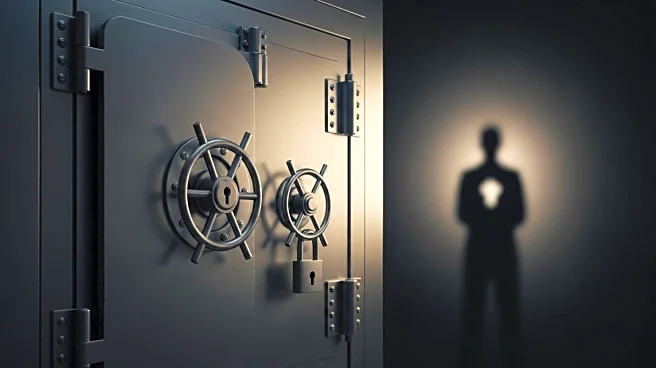What's Happening?
Jackee Taylor, who entered the U.S. Federal Witness Protection Program at the age of seven, has shared her experiences of living under a secret identity for over 40 years. Her father, Clarence 'Butch' Crouch, was a member of the Cleveland Hells Angels motorcycle club and turned state's evidence, which led to their family's inclusion in the program. Taylor has faced numerous challenges, including difficulties in proving her identity, which affected her children's access to health insurance. She has criticized the lack of support from the United States Marshals Service, particularly in obtaining proper identification and mental healthcare. Since going public in 2010, Taylor has advocated for reforms in the witness protection system, highlighting the need for better support for individuals and families involved.
Why It's Important?
The insights provided by Jackee Taylor underscore significant issues within the U.S. Witness Protection Program, particularly concerning the long-term impacts on individuals and families. Her advocacy for reform highlights the need for improved support systems, including mental health services and identity verification processes. This is crucial for ensuring the well-being and security of those in the program, who often face isolation and identity challenges. The call for reform could lead to policy changes that enhance the effectiveness and humane treatment of protected witnesses, impacting how the justice system manages informants and their families.
What's Next?
Taylor's public advocacy and the narrative podcast series 'Relative Unknown' are likely to continue drawing attention to the challenges faced by those in witness protection. As the second season of the podcast is in development, it may further explore these issues and potentially influence public opinion and policy discussions. Stakeholders, including lawmakers and justice system officials, may consider Taylor's experiences and calls for reform as they evaluate the program's effectiveness and areas for improvement.
Beyond the Headlines
The ethical dimensions of witness protection involve balancing the need for secrecy with the rights and well-being of individuals. Taylor's story raises questions about the moral obligations of the government to provide adequate support and the potential psychological impact of living under a false identity. Long-term shifts could include increased transparency and accountability within the program, fostering a more supportive environment for witnesses.









